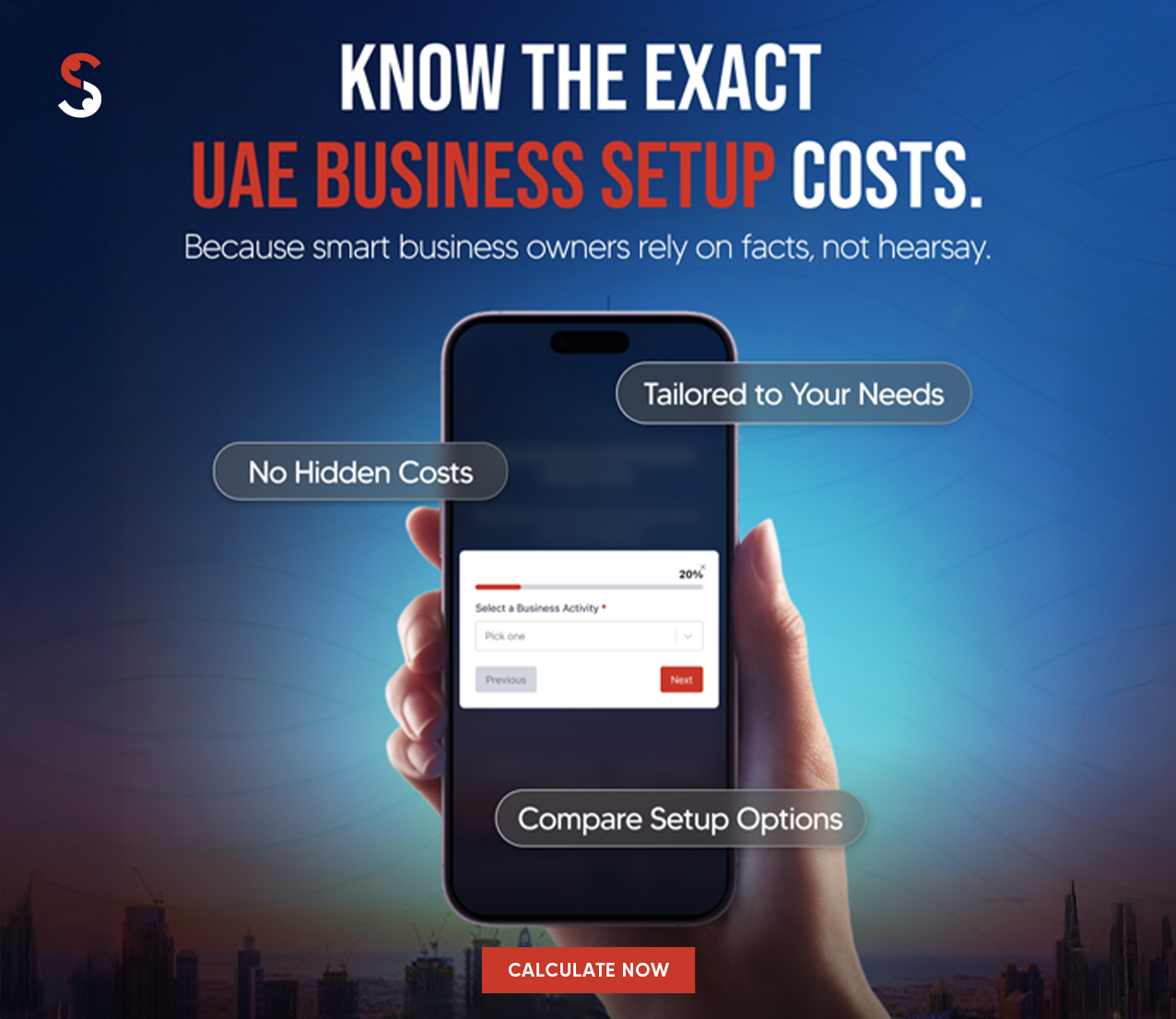Starting an investment company in Dubai or anywhere in the UAE can be a rewarding business opportunity. The region offers a dynamic financial ecosystem, zero personal and limited corporate tax in many cases, and investor-friendly laws that attract both local and international entrepreneurs.
In this comprehensive guide, we’ll explain who can open an investment company, what a hedge fund is, how the process works, what legal structures are available, costs involved, and why Dubai is an ideal location. This blog is crafted to help investors make informed decisions and comply with UAE regulations.
Who Can Start an Investment Company in the UAE?
Anyone, whether an UAE national or a foreign investor, can open an investment company, provided they meet the necessary regulatory, financial, and licensing criteria.
There are three broad categories of investors:
- Individual investors (HNIs or entrepreneurs)
- Institutional investors (family offices, funds)
- Foreign companies looking to open a branch or subsidiary
Experience in finance, investment, or asset management is highly recommended, and in some cases, mandatory licensing may require proof of professional competence.
Pro Tip: Working with experts like Shuraa Business Setup, can streamline the process and ensure full compliance, allowing you to focus on fund performance and strategy.
Why Choose Dubai or UAE for an Investment Company?
Dubai, United Arab Emirates, is widely recognised as an attractive location for the establishment of investment company businesses for several compelling reasons:
- Prime Location: Dubai’s strategic location at the crossroads of Europe, Asia, and Africa provides simple access to a vast consumer market.
- 100% Foreign Ownership: Allowed in many free zones and mainland structures
- Tax Advantages: No personal or capital gains tax; 9% corporate tax applies with exemptions
- Regulatory Clarity: Clear frameworks under DFSA, FSRA, or SCA
- Investor Trust: Strong banking infrastructure and financial laws
- Ease of return: Full profit and capital repatriation permitted
- Business-Friendly Environment: The government of the UAE is committed to serving a business-friendly environment with investor-friendly policies.
- Infrastructure and Connectivity: Dubai provides world-class infrastructure, modern transport systems, and advanved communication networks.
- Global Talent Pool: The UAE attracts highly qualified professionals from all over the globe.
- Economic Free Zones: Free zones, such as IFZA, provide investment companies with specialised environments, incentives, etc.
Types of Investment Funds in UAE
The United Arab Emirates (UAE) has emerged as a prominent financial centre, offering a broad spectrum of regulated investment fund structures to cater to various investor profiles and strategies.
Whether you’re a global fund manager or a regional investor, the UAE offers an attractive ecosystem, particularly in Dubai, where obtaining an investment license is streamlined and the business environment is conducive to growth.
- Public Funds: These are open to retail investors and must be approved by the UAE Securities and Commodities Authority (SCA). They require a higher level of regulatory oversight and transparency. Public funds are ideal for large-scale investment projects accessible to a wide investor base.
- Private Funds: Private funds are restricted to professional investors and have fewer regulatory requirements. These are typically used by high-net-worth individuals, family offices, and institutional investors seeking greater flexibility.
- Qualified Investor Funds (QIF): QIFs are designed for professional clients and can be established with faster approval timelines. These are commonly registered in Dubai International Financial Centre (DIFC) or Abu Dhabi Global Market (ADGM) and often benefit from simplified compliance obligations.
- Real Estate Investment Trusts (REITs): REITs are collective investment vehicles that own income-generating real estate. Licensed and regulated under UAE laws, they provide investors with exposure to the property market without requiring direct ownership of physical assets.
- Exchange-Traded Funds (ETFs): ETFs are listed on stock exchanges and provide exposure to various indices, commodities, or sectors. They are ideal for investors seeking liquidity and diversified exposure with lower transaction costs.
- Hedge Funds: Hedge funds in the UAE are primarily set up as private funds or QIFs. If you’re looking to open a licensed hedge fund in Dubai, you’ll typically do so through the DIFC or ADGM, where regulatory frameworks are internationally aligned and investor-friendly. A Dubai investment license tailored to hedge funds enables sophisticated strategies, such as short selling, leverage, and derivatives.
- Shariah-Compliant Funds: These funds adhere to Islamic finance principles and are governed by a Shariah board. They’re gaining popularity in the region, especially among Muslim investors seeking ethical financial solutions.
Also Read: How to Start a Real Estate Business in Dubai
Getting an Investment License in Dubai
To operate any type of fund, securing an investment license in Dubai is essential. Authorities like the SCA, DIFC, and ADGM offer various fund registration pathways. Whether you’re launching a private equity vehicle or looking to open a license hedge fund in Dubai, a Dubai investment license provides the legal foundation to operate, raise capital, and manage assets professionally.
Dubai’s strong regulatory environment, paired with its global connectivity and tax advantages, makes it an ideal base for launching various types of investment funds. Whether you’re aiming to tap into retail markets or establish a niche hedge fund, obtaining an investment license in Dubai is your first step toward unlocking the region’s financial potential.
Types of Investment Licenses in the UAE
The type of license depends on your investment activities:
| License Type | Regulatory Authority | Description |
|---|---|---|
| Financial Investment License | DFSA (DIFC) or FSRA (ADGM) | For asset management, advisory, fund management |
| Investment Activity License | DED (Mainland) or Free Zones | For general investment in companies, real estate, shares |
| Holding Company License | DED / Free Zones | To hold assets, shares, or subsidiaries |
For highly regulated financial services like hedge funds, VC firms, or portfolio management, you’ll require a license from:
- Dubai Financial Services Authority (DFSA) – in DIFC
- Financial Services Regulatory Authority (FSRA) – in ADGM
- Securities and Commodities Authority (SCA) – for onshore entities
Conditions for obtaining an investment company license in UAE
To obtain an investment and finance firm license in the UAE, the following requirements must be met:
- Obtain a business license from the appropriate authority.
- Comply with all laws and regulations.
In the UAE, obtaining an investment and finance business license can be a complicated procedure. It is essential to seek professional guidance to ensure compliance with all requirements and avoid delays.
Regulatory Authorities for Fund Managers in Dubai
Fund managers in Dubai are regulated by:
- Securities and Commodities Authority (SCA) – for onshore UAE funds.
- Dubai Financial Services Authority (DFSA) – for DIFC-based funds.
Key Requirements
- Licensing – Mandatory from SCA or DFSA, depending on jurisdiction.
- Capital Requirements –
- DFSA: USD 70K–500K (varies by activity).
- SCA: Typically AED 1M+.
- Fit & Proper Test – Directors/managers must prove qualifications and clean history.
- Compliance & Risk – Need Compliance Officer, MLRO, and risk framework.
- Audits & Reporting – Annual audits and periodic disclosures required.
- AML/KYC – Strict adherence to UAE anti-money laundering laws.
- Investment Rules – Limits on leverage, eligible assets, and investor types.
- Cross-Border Offerings – DFSA allows GCC passporting with approval.
DIFC-Specific Rules (DFSA)
- Must set up a DIFC entity (e.g., Ltd./LLP).
- Typically require Category 3C license.
- Principles-based regulation with strong compliance expectations.
Non-Compliance Risks
- Fines, license revocation, or legal action.
Engage a financial advisor for smooth licensing and compliance.
How to Open an Investment Company in Dubai
To open an investment company in Dubai, you’ll need to navigate a process that includes selecting a legal structure, applying for the right licenses, obtaining minimum capital, and preparing the right documents. If you’re considering launching your own investment firm or hedge fund, Dubai offers a prime location, zero personal tax, and a pro-business regulatory environment. Consulting with a business setup expert like Shuraa can streamline the process and ensure compliance.
Here’s a step-by-step breakdown:
Step 1: Choose the Right Legal Structure
To open an investment company or hedge fund, you first need to decide on the business structure. Common options include:
- Limited Liability Company (LLC)
- Free Zone Company
- Private Joint Stock Company
Free Zones such as the Dubai International Financial Centre (DIFC) or Abu Dhabi Global Market (ADGM) are often preferred for financial and investment services due to their independent regulatory frameworks and 100% foreign ownership.
Step 2: Apply for an Investment License in Dubai
Obtaining an investment license in Dubai is a key requirement. This enables your firm to conduct financial and investment-related activities in a legally compliant manner.
Depending on the nature of your business, you’ll need approvals from regulatory bodies such as:
- Dubai Financial Services Authority (DFSA) – for entities operating within DIFC
- Securities and Commodities Authority (SCA) – for onshore investment activities
This step is crucial, especially if you’re exploring how to start a hedge fund in Dubai.
Step 3: Meet Capital Requirements
To obtain a Dubai investment license, you must demonstrate adequate financial backing. Most hedge fund structures require:
- A minimum capital of AED 1 million or more, depending on the scope of operations.
- Proof of funds and a well-defined investment strategy.
For those aiming to open a license hedge fund in Dubai, capital adequacy and financial disclosure are non-negotiable regulatory requirements.
Step 4: Appoint Key Personnel
Regulators will also require you to appoint qualified professionals for specific roles:
- Fund Managers
- Compliance Officers
- Risk Analysts
These personnel must meet the competency criteria set by DFSA or SCA.
Step 5: Prepare and Submit Your Application
Your license application must include:
- Business plan and investment strategy
- KYC/AML policies
- Detailed financial projections
- Background checks for directors and shareholders
Once submitted to the relevant authority (DIFC/DFSA or DED/SCA), the approval process can take several weeks to months.
Step 6: Open a Corporate Bank Account
After obtaining your Dubai investment license, you can open a corporate bank account in the UAE to manage operational and client funds. Some banks may require a physical office and detailed compliance documents.
Read more: How to open a corporate bank account in the UAE
Step 7: Stay Compliant and Audited
After launching your company, ongoing compliance with local laws is essential. You must:
- File regular financial reports
- Maintain up-to-date client records
- Undergo annual audits
- Stay aligned with international regulations like FATCA and CRS
Whether you’re looking to launch a boutique investment advisory or start a hedge fund in Dubai, the emirate offers immense opportunity. With a strong legal framework, tax incentives, and strategic location, obtaining an investment license in Dubai could be your gateway to international growth.
If you’re serious about launching, consider working with consultants like Shuraa, who are familiar with Dubai investment license regulations, to ensure a smooth and compliant setup process.
What is the Cost of Opening an Investment Company in Dubai
The cost of opening an investment company in Dubai can range from AED 10,000* to AED 25,000* or (higher for regulated financial licenses), depending on various factors. Factors influencing the cost include the chosen location (mainland or free zone), the specific business activity, and the chosen legal structure.
Here’s a more detailed breakdown:
| Expense Item | Estimated Cost (AED) |
|---|---|
| Trade Name & Initial Approval | 300*- 800* |
| License & Registration Fees | 10,000* – 25,000* (higher for regulated financial licenses) |
| Office Rental (Annual) | 25,000* – 75,000*+ |
| Visa & Immigration | 3,000* – 7,000* per visa |
| Compliance & Legal | 10,000* – 30,000*+ (for DFSA/FSRA-regulated firms) |
| Corporate Bank Account | Varies (due diligence fees may apply) |
Tip: For high-compliance sectors, always factor in legal and regulatory consulting costs. The cost mentioned above can vary according to your business needs.
Required Documents for Opening Investment Company
Common documentation includes:
- Passport copies of shareholders/directors
- Business plan and financial model
- Passport size photograph
- Emirate ID
- Proof of address (utility bill or tenancy contract)
- Bank reference letter
- Educational/experience certificates (for regulated firms)
- KYC/AML policies (if required by regulator)
Best Free Zones for Investment Companies in the UAE
To establish an investment company in Dubai, it is essential to select the most suitable free zone. IFZA free zones offer numerous benefits and cater specifically to the financial and investment industries.
1. Dubai International Financial Centre (DIFC)
The DIFC is a globally renowned financial centre, famous for its sophisticated infrastructure, supportive regulatory framework, and robust legal system. It offers a range of financial services, including asset management, private equity, and wealth management. The DIFC’s business-friendly environment attracts top-tier financial institutions and international professionals.
2. Abu Dhabi Global Market (ADGM)
The ADGM is a prominent free zone located in the capital city of the United Arab Emirates, providing a favourable environment for investment companies. It specialises in diverse financial activities, including fund management, asset servicing, financial advisory services, and innovation. The ADGM is well-known for its innovative approach, regulatory transparency, and access to an extensive investor network.
3. International Freezone Authority (IFZA)
If investments are related to foreign assets or if a company is to become a shareholder of a UAE mainland company, a company registered in the free trade zone of the IFZA, which is designated for international trade and investments, would be the best option for such purposes.
UAE is a prominent location for investment and finance enterprises. The country offers numerous benefits, including a stable economy, a skilled labour force, and a strategic location.
Permitted Activities Covered by the Free Zones
Freezone provides investment companies with a comprehensive list of permitted activities. These activities might consist of:
- Asset administration
- Capital management
- Investment advisory Fund administration
- Private capital
- Venture capital
- Securities exchange
- Financial consultancy
- Islamic financial institutions
- Fintech advancements and more
What is a Hedge Fund in UAE?
A hedge fund in the UAE is a private investment vehicle that pools capital from accredited or institutional investors to invest in a diverse range of assets, including equities, derivatives, currencies, and alternative investments. These funds are managed by professional fund managers who use advanced strategies, including leveraging, short-selling, and arbitrage, to maximise returns while managing risk.
Unlike mutual funds, hedge funds are not open to the general public and are typically structured to allow more flexibility in investment strategy and asset allocation. The UAE, especially Dubai, has become an attractive destination for hedge fund managers and investors due to its robust regulatory environment, tax-friendly policies, and access to international markets
How Do You Establish a Hedge Fund in Dubai?
If you wish to establish a hedge fund in Dubai, you must first comply with the regulations governing this type of investment vehicle. Among these, the creation of a prospectus containing information about the investment plan, business strategies, proprietors, the value of the fund’s assets, and the administration procedures is crucial. Once a legal entity is registered in Dubai, a hedge fund is created.
In the UAE, hedge funds are established with a minimum capital requirement of 10 million AED. A hedge fund must be effectively promoted in the industry for which it was established, using a variety of promotion strategies. Foreign investors in Dubai may also seek the assistance of wealth management firms in Dubai, which are prepared to implement a series of business plans for the hedge fund’s sustenance and promotion.
How Can Shuraa Assist with Starting an Investment Company?
Shuraa Business Setup can provide comprehensive assistance with the process of establishing an investment company, leveraging its extensive experience and in-depth knowledge of the local market. Their services consist of company registration, licensing, visa processing, legal and compliance assistance, office space solutions, and ongoing business advisory services.
By partnering with Shuraa Business Setup, you can leverage their expertise and ensure the seamless and efficient formation of your Dubai investment company.
Establishing an investment firm in Dubai, United Arab Emirates, offers vast opportunities for growth and success. Dubai is an ideal location for investment enterprises due to its strategic location, investor-friendly policies, top infrastructure, and specialised free zones, such as IFZA.
By meticulously considering the appropriate free zone, understanding the permitted activities, preparing the necessary documents, and seeking expert guidance from firms such as Shuraa Business Setup, you can successfully establish your investment company formation in Dubai. Embrace Dubai’s dynamic business environment and capitalise on its immense investment and entrepreneurial potential.
Get in touch with Shuraa to speak with one of our seasoned Dubai business establishment experts for free. Call us at +971 4 4081900, contact us via WhatsApp at +971 50 7775554 and reach us at info@shuraa.com.
Frequently Asked Questions (FAQs)
1. How Can I open investment company in the UAE?
To open an investment company in the UAE, you must select a jurisdiction (mainland or free zone), choose a business activity and legal structure, reserve a company name, secure initial and final business licenses from the relevant authorities (like DFSA for financial services), lease an office space, obtain necessary government approvals, and finally, open a corporate bank account to handle transactions.
2. What are the top regions for registering a UAE hedge fund?
The top regions include DIFC (Dubai International Financial Centre) and ADGM (Abu Dhabi Global Market). DIFC is especially popular for those looking to open a license hedge fund in Dubai.
3. Licensing requirements for UAE hedge funds?
To open a license hedge fund in Dubai, you must obtain approval from the DFSA (for DIFC) or FSRA (for ADGM), meet capital requirements, appoint licensed fund managers, and get an investment license in Dubai.
3. Who manages hedge funds in the UAE?
Hedge fund managers must be licensed by the financial regulator in their jurisdiction (DFSA or FSRA) and have a proven track record and relevant qualifications to manage funds under the Dubai investment license framework.
4. Who can register a hedge fund in the UAE?
Qualified investment firms, licensed fund managers, and high-net-worth individuals can establish a hedge fund in Dubai by meeting the eligibility and regulatory requirements and obtaining an investment license in Dubai.
5. What are the main requirements for a DIFC hedge fund?
Main requirements for a DIFC hedge fund are:
- Appoint a DFSA-regulated fund manager
- Meet minimum capital and compliance standards
- Submit a detailed fund structure
- Hold a valid Dubai investment license.
6. How do you qualify as an investment company?
To operate legally in the UAE, you must meet the minimum capital requirements, have a legal structure, obtain regulatory approval, and secure an investment license in Dubai.
7. Is Opening an Investment Company in Dubai Worth It?
Yes, opening an investment company in Dubai is worth it, if you’re looking to:
- Expand your investment portfolio in a tax-efficient jurisdiction
- Enter the Middle Eastern or African market
- Offer regulated or non-regulated financial services
- Benefit from Dubai’s pro-business infrastructure and global connectivity
8. Do I need financial qualifications to start an investment company?
Yes, if you are offering regulated services. You’ll need relevant degrees, certifications (like CFA), and experience.
9. Can I own 100% of my investment company in Dubai?
Yes, most free zones and some mainland structures allow 100% foreign ownership.
10. Can I open a holding company to manage assets globally?
Yes, UAE holding companies are commonly used for global investments and assets.
11. How long does it take to set up?
For non-regulated investment companies it takes around 1–2 weeks and for regulated firms it takes up to 3–6 months (due to licensing and due diligence).
Disclaimer: The information in this post is for general guidance only and may change due to updates in government policies or regulations.










